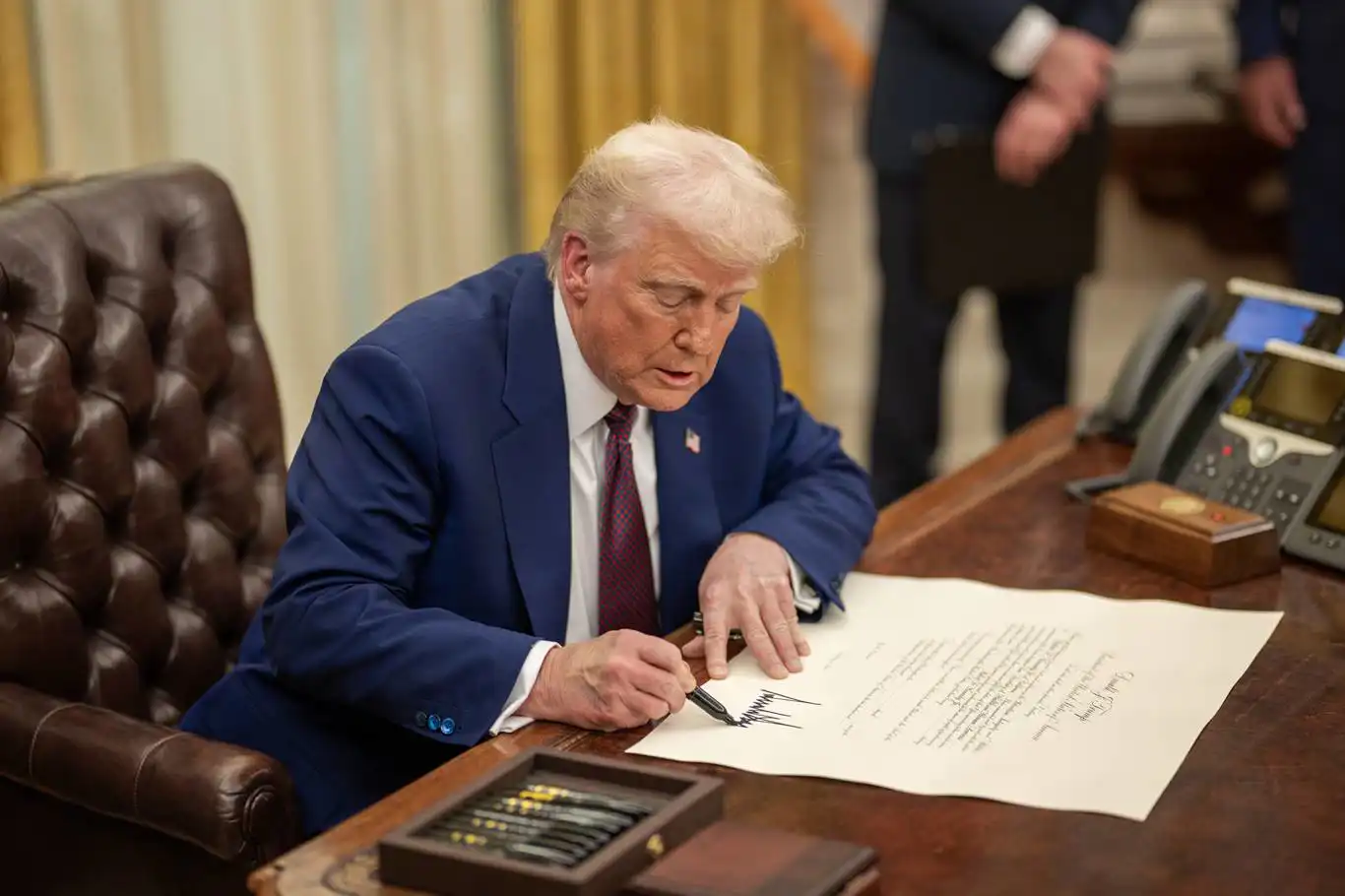Trump's misguided "Fair and Reciprocal Plan" threatens global trade stability


The U.S. President Donald Trump has unveiled yet another controversial trade policy initiative, the so-called “Fair and Reciprocal Trade Plan,” which promises to fix what he claims are unfair trade practices by foreign nations.
The U.S. President Donald Trump has unveiled yet another controversial trade policy initiative, the so-called “Fair and Reciprocal Trade Plan,” which promises to fix what he claims are unfair trade practices by foreign nations.
While the administration argues that the plan is necessary to protect American workers and industries, critics warn that it could further alienate U.S. trading partners, escalate global trade wars, and worsen the very economic imbalances Trump purports to address.
The President’s latest proposal is a direct attack on global trade systems, framed as an attempt to correct long-standing trade imbalances and increase U.S. competitiveness. Trump’s rhetoric focuses on the idea of "reciprocity" in international trade, demanding that other nations match U.S. tariffs and taxes. He argues that the U.S. has been taken advantage of, citing examples such as Brazil's ethanol tariffs, India’s high agricultural tariffs, and the European Union’s 10% tariff on imported cars. While these disparities may seem problematic, Trump’s solution of imposing even more aggressive tariffs and renegotiating trade deals raises serious concerns.
First, the approach is dangerously simplistic. The U.S. economy is interconnected with the global market, and raising tariffs across the board could have devastating effects on American consumers and industries that rely on international supply chains. Forcing other countries to impose the same tariffs on U.S. goods, while only making American goods more expensive for foreign consumers, could backfire by harming U.S. exports. This would only exacerbate the trade deficit, not solve it.
Trump’s obsession with closing trade deficits, particularly through tariffs, ignores the complex realities of global trade. A trade deficit does not necessarily equate to economic harm. In fact, the U.S. enjoys many benefits from global trade, including access to cheaper goods and services, increased consumer choice, and a competitive advantage in key industries. By targeting specific countries with retaliatory tariffs, Trump risks disrupting these relationships and causing unnecessary economic pain for American workers.
Moreover, the President’s focus on “digital service taxes” imposed by other countries, like those in Canada and France, is nothing short of a red herring. While these taxes may affect certain U.S. tech giants, they are not representative of the broader global economy. The issue should be addressed through multilateral agreements, not unilateral tariffs that could ultimately harm U.S. firms in the long run.
The plan also rehashes many of Trump’s previous trade policies, such as the tariffs on steel and aluminum and the renegotiation of NAFTA into the USMCA. While these actions may have provided short-term political victories, they failed to bring about the promised long-term benefits for American workers. Instead, industries were hit with higher costs, and retaliatory tariffs from foreign governments caused U.S. businesses to lose market share and jobs.
Furthermore, Trump’s bluster about putting America First conveniently overlooks the fact that his trade policies have isolated the U.S. from key allies, damaged diplomatic relations, and undermined the stability of global trade systems. His trade wars with China, for example, have already cost U.S. farmers billions of dollars in lost export sales and increased costs.
The “Fair and Reciprocal Trade Plan” is a reckless gamble that disregards the long-term consequences of disrupting global trade relationships. Rather than fostering fairness and boosting the U.S. economy, it threatens to sow more discord, deepen economic divides, and alienate countries that are essential to American prosperity. Instead of making America more competitive, it risks making the country less connected to the world, which could be far more damaging than Trump’s rhetoric suggests.
In short, this plan is just another example of Trump's misguided approach to trade—one that prioritizes short-term political gains over long-term economic stability, risking harm to American workers and global relations in the process. (ILKHA)
LEGAL WARNING: All rights of the published news, photos and videos are reserved by İlke Haber Ajansı Basın Yayın San. Trade A.Ş. Under no circumstances can all or part of the news, photos and videos be used without a written contract or subscription.
Türkiye’s construction sector recorded a 14.4% annual increase in December 2024, according to data released by the Turkish Statistical Institute (TurkStat) on Friday.
The Turkish Statistical Institute announced on Friday that house sales in Türkiye saw a significant increase of 39.7% in January compared to the same month of the previous year, totaling 112,173 units sold.
The Central Bank of the Republic of Türkiye (CBRT) saw its total reserves increase by $1.517 billion to $167.492 billion in the week ending February 7th, according to the bank's weekly money and banking statistics.
Türkiye’s current account deficit expanded beyond expectations in December 2024, reaching $4.65 billion, according to data released by the Central Bank of the Republic of Türkiye (CBRT).